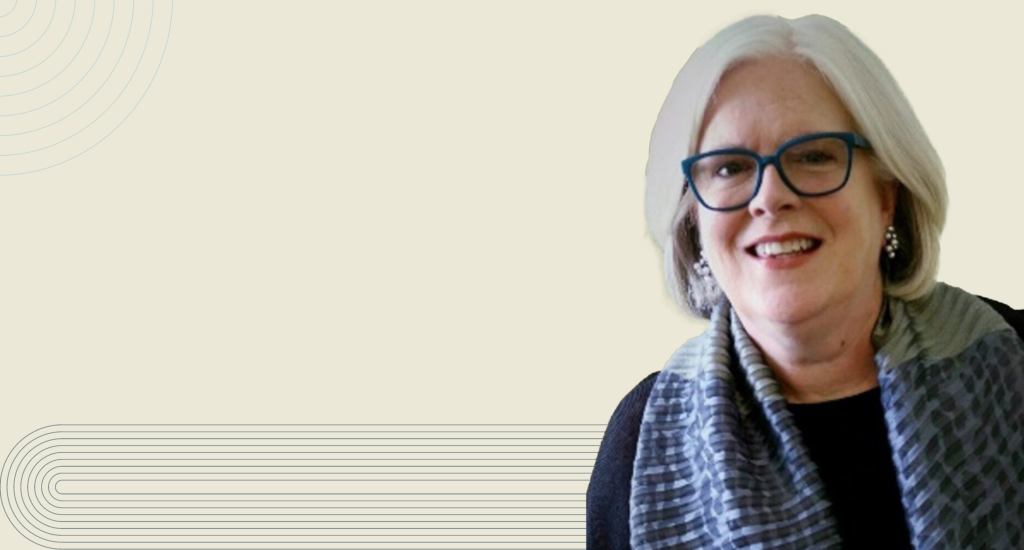News
Patty Stonesifer: “I want to see people of wealth realize that the best way to achieve large-scale impact is to embrace partnerships that provide flexible, long-term funding to address complex social problems.”
The former Washington Post leader and philanthropic advisor on opening doors for other women, wealth transfer for impact, and why meditation is her go-to self-care practice.

Patty Stonesifer is a seasoned global leader. After a phenomenal career in technology, Patty transitioned to the philanthropic and non-profit sectors, serving in various senior roles including as the founding CEO of the Bill and Melinda Gates Foundation, CEO of Martha’s Table and most recently as interim CEO at The Washington Post. Beside serving as Co-Impact’s Board Vice-Chair, Patty is on the board of Amazon.com, the Board of Trustees for The Rockefeller Foundation, and the Board of Advisors for The Dream.US. She has received honorary doctorate degrees from five universities and serves as a pro bono advisor to social justice leaders and philanthropists.
Q&A
What drew you to work with Co-Impact as a board member?
I was drawn to Co-Impact because I had the pleasure of knowing Olivia while we built out the idea of the Giving Pledge. She and I had endless discussions about how to influence the transfer of wealth to communities and leaders who could really make big changes and create the most impact. While I left the Gates Foundation shortly after we launched the Giving Pledge, I watched Olivia’s continued progress in pursuing these ideas, which led to Co-Impact. I was excited at this much-needed opportunity for both philanthropists and social impact leaders and organizations to co-create enduring impact.
What do you hope to see in 5 or 10 years as a result of Co-Impact’s work?
I think there’s three pillars to the work. One, I want to see people of wealth realize that the best way to transfer their wealth and see large scale impact is to understand and embrace the idea of partnerships that give program partners (grantees) flexible, long-term funding to address complex problems that affect the way we live.
Second, is for political leadership and commercial and market-based leadership to understand that these kinds of collaboration and movements are something they must buy into and fund at appropriate levels.
Third, I’d like to see the coalitions Co-Impact is partnering with realizing their visions and demonstrating their impact, showing that Co-Impact’s model is the way to create deep enduring change that benefits millions of lives.
How can current women leaders support the next generation of women leaders?
Where I’ve had the benefit of being a woman in leadership in a largely male-dominated sector, I have volunteered on governing committees. So, if you’re in the university, it’s in the admissions or advancement group. If you are in a corporate setting, it’s the governance nominating committee – because this way you can help make sure women are considered for leadership. There are lots of places where women (and all) leaders can look to see where more women can be brought in. They won’t all succeed, just as all men don’t succeed – the key is to make sure that we are pulling them in and giving them enough of a spotlight, enough of a seat at the table so that they can shine in the way we know so many women can, when obstacles are removed and doors are open.
Given your many responsibilities, what’s your practice for self-care?
When I was a younger woman with young children and a big job, I accepted that I was on a teeter-totter between work and family and that that would be my life for a while. I wasn’t going to become the world’s best chef, spiritual leader, or yogi at that stage of my life.
Now I’m at a different stage and I have learned in the last 15 years something that I wish I’d had from the beginning: meditation. Every day I meditate briefly, and it helps me to ground myself in the appreciation and gratitude that comes with being very present. Even when things are difficult there is something to be present for, and it’s a very important part of my self-care.
I’ve seen that even in organizations it’s important to be present for everything that is going on: the joyful, the funny, the delightful and even the difficult. One of my mentors uses the phrase that “we need to be tactically impatient and strategically very patient”. The big changes Co-Impact and the program partners are working towards are going to take a lot of time. So, be tactically impatient and use your time to get things done. Be very present in it, but strategically be very patient with yourself, with your partners, and with the issues because it is a long road.